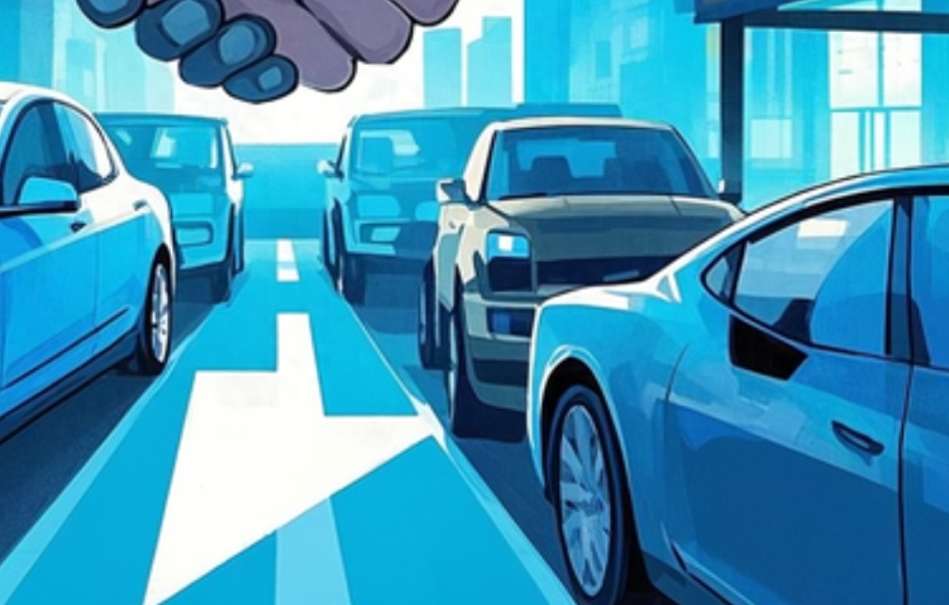Ford Eyes Tesla for Autonomous Driving Tech
Advertisements
In an unexpected revelation during Ford Motor Company's fourth-quarter 2024 earnings call, CEO Jim Farley publicly acknowledged that the automaker is trailing behind in the race for autonomous driving technology. This admission raises important questions regarding the company's future strategies, partnerships, and its overall position in the rapidly evolving automotive landscape.
Farley’s remarks highlighted Ford's intention to explore collaborations with other companies to effectively advance its fully autonomous driving technology. His candid acknowledgment of the company's lack of confidence in its internal capabilities signaled a notable shift in approach for the storied automaker, traditionally known for its engineering prowess. The implications of such remarks sent ripples across the financial market, with many analysts speculating about the potential for collaboration with Tesla. Elon Musk, Tesla’s CEO, has previously mentioned on multiple occasions during his own earnings calls that numerous automotive manufacturers have expressed keen interest in licensing Tesla’s Full Self-Driving (FSD) technology. Although no definitive partners have been confirmed to date, Ford found itself amidst these conjectures as a prominent candidate.

This speculation about a potential Ford-Tesla partnership is underscored by a backdrop of previous collaboration between the two companies. Earlier in May 2023, Ford announced that starting in the spring of 2024, its electric vehicle owners would gain access to Tesla's extensive Supercharger network, which boasts over 12,000 locations in the United States and Canada. This move effectively doubles the fast-charging network available to Ford’s electric vehicle owners. Furthermore, beginning in 2025, Ford plans to integrate Tesla's North American Charging Standard (NACS) plug into its new electric models, fostering an even closer relationship in the electric vehicle space. However, discussions regarding FSD technology collaboration remain speculative, and the industry continues to monitor the evolution of this potential partnership.
The financial landscape for Ford's electric vehicle (EV) segment paints a sobering picture. In their fourth-quarter report for 2024, Ford's EV business faced a staggering loss of $1.389 billion—only trailing behind the previous year's record loss of $1.57 billion in the fourth quarter. Over the past three years, Ford has accrued collective losses of $11.9 billion in electric vehicle sales alone. Farley emphasized the necessity of quickly scaling production to attain economies of scale if the EV business is to achieve profitability. However, this rapid expansion demands significant capital investment, and with an annual cash flow of only $6.7 billion, the challenges ahead are formidable.
Examining the cost structure associated with electric vehicle development reveals a conundrum for Ford. The research, production, and marketing of electric vehicles demand substantial financial resources. Specifically in the research phase, Ford must allocate significant funds toward battery technology innovation, autonomous driving technology advancement, and vehicle smart upgrades. In terms of production, the disparity between traditional internal combustion engines and electric vehicles translates to dramatically different production processes and equipment, requiring costly adjustments to existing manufacturing lines. Additionally, substantial marketing expenditures are necessary to elevate brand awareness and product acceptance in a highly competitive landscape where consumer demand remains in flux. Presently, Ford’s electric vehicle sales do not match up adequately to offset these operational costs, leading to a persistent cycle of losses.
In parallel, it is crucial to acknowledge the adverse impact of the current U.S. regulatory environment on Ford's ambitious plans for electric vehicle deployment. Recent actions by the Biden administration, including the reversal of a pre-existing executive order aimed at having 50% of new car sales being electric vehicles by the year 2030, coupled with a freeze on federal funding for electric vehicle charging infrastructure, present hurdles for Ford's growth aspirations. Moreover, discussions are underway regarding the potential elimination of electric vehicle tax credits, which could create a precarious situation for Ford. Musk has previously suggested that the elimination of electric vehicle subsidies would benefit Tesla by putting its competitors at a disadvantage. For traditional automakers like Ford, which are still striving to make their electric vehicle business profitable, the withdrawal of these incentives could exacerbate financial pressure.
The road ahead for Ford is undoubtedly fraught with challenges, but the potential for revitalization through strategic partnerships, innovative thinking, and adaptability to changing market conditions offers a glimmer of hope. The automotive industry is witnessing a paradigm shift, with the future increasingly leaning toward automation and electrification. As Ford navigates its way through the complexities of this landscape, its ability to remain agile while fostering meaningful collaborations may prove critical in regaining its foothold in an industry defined by rapid technological advancements and evolving consumer expectations.
Ultimately, Ford's journey into the realm of autonomous and electric vehicles is just beginning. The company's leadership must not only address immediate financial hurdles but also foster an ambitious vision that aligns with the transformative changes reshaping the automotive marketplace. By embracing collaborative efforts, investing wisely in research and development, and advocating for favorable regulatory frameworks, Ford can usher in a new era that redefines its legacy while contributing to a more sustainable future.
Leave A Comments